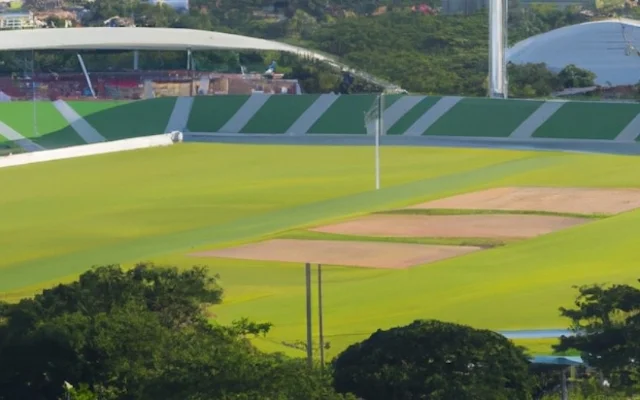
Administrators in the sport of cricket continue to have serious concerns about corruption. Nevertheless, the ICC’s anti-corruption branch acted swiftly in response to a former Kenyan international’s effort to involve a Ugandan player in unethical practices during the current T20 World Cup.
Based on information obtained by PTI, this event happened in Guyana during the league stage matches. Recall that the former Kenyan pacer made several attempts to reach a Ugandan team member on various phone numbers. Respecting the strict anti-corruption guidelines set forth by the ICC, the Ugandan athlete informed the ACU representatives present about these methods.
The officials were prompted by this development to issue a warning to all the affiliated teams on the former Kenyan player.
“It is not a surprise that this person targeted a player from the Ugandan national team. Associate nations, as compared to the big teams, are soft targets for corruption but in this case, the player who was approached did the needful by informing the ICC at the earliest,” a source told.
The ICC warns Associate Nations about a potential corrupt approach:

The ICC‘s anti-corruption code is broken when a corrupt approach is not reported. Other violations include using insider knowledge improperly, placing bets on games, manipulating matches, and refusing to assist with inquiries.
Uganda lost to Afghanistan, New Zealand, and the West Indies on Friday in Trinidad, but they also had a thrilling victory over Papua New Guinea to cap off their T20 World Cup campaign. Uganda participated in three of their four league games in Guyana as newcomers to the competition, along with co-hosts USA and Canada.
Players are often approached, particularly those from smaller countries. Major tournaments such as the Twenty20 World Cup get more attention. Another source states that when an approach is reported to the ICC ACU, the correct procedure is followed and a comprehensive inquiry is carried out.
To strengthen its and its member boards’ capacity to “proactively and thoroughly investigate incidents of corruption in the ongoing effort to protect the integrity of the game,” the ICC updated its anti-corruption code on June 1.
“The anti-corruption code covers all cricket (whether international or domestic) played under the auspices of the ICC and its Members and applies to all participants: player, coach, trainer, manager, selector, team owner or official, doctor, physiotherapist, match referee, pitch curator, player agent, umpires, as well as ICC and NCF officials.”.
According to an extract from the ICC Anti-Corruption Code for participants, “the maximum possible sanction for the most serious breaches of the Anti-Corruption Code is a life ban from all involvement in the game. In some countries, there is also the possibility of criminal sanctions.”
Get the latest cricket news here, like us on Facebook, and follow us on Twitter and Instagram for more such updates.


![[WATCH]- Rajat Patidar’s 81* Off 40 Powers Madhya Pradesh In SMAT 2024-25 Final](https://cricfit.com/wp-content/uploads/2024/12/IMG_2560-100x75.jpeg)
![[WATCH]- Jasprit Bumrah Dismisses Travis Head, Claiming A Five-Wicket Haul In The BGT 2024-25 3rd Test](https://cricfit.com/wp-content/uploads/2024/12/IMG_2556-1-100x75.png)
![[WATCH]- Rohit Sharma’s Brilliant Catch Ends Steve Smith’s Masterclass In BGT 2024-25 3rd Test](https://cricfit.com/wp-content/uploads/2024/12/IMG_2558-100x75.jpeg)
![[WATCH]- Virat Kohli Praises Travis Head For His Century On Day 2 Of The BGT 2024-25 3rd Test](https://cricfit.com/wp-content/uploads/2024/12/IMG_2555-100x75.jpeg)
